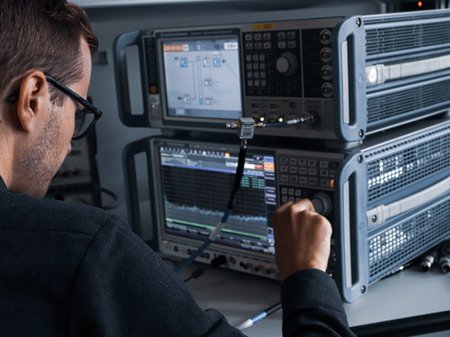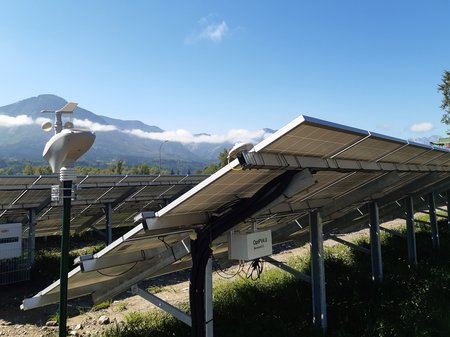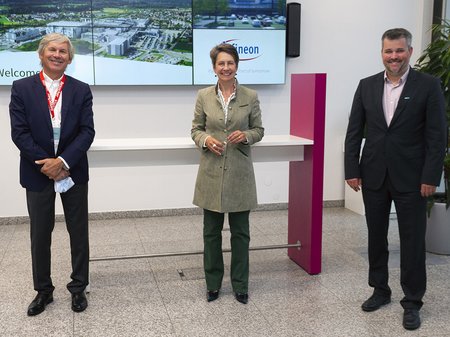From machine learning and signal processing methods that make industrial processes more energy-efficient, to connectivity and future mobile communications standards such as 6G, power electronic components and systems for optimizing e-mobility, to repair, further development, and sustainable recycling of photovoltaic modules - innovations in the field of electronic based systems (EBS) can do a lot to protect the climate. Silicon Austria Labs (SAL) is working on key technologies for the energy transition at three locations in Austria. The added value: Research at SAL thrives on cooperation between science and industry and conducts research along the entire value chain of electronic based systems. This was also the topic of SAL’s panel "The Power of EBS for a Greener Future", where a wide variety of solutions for a green future in the areas of sensor systems, RF systems, power electronics, system integration and embedded systems was discussed.
SAL was also able to win two renowned, international participants for the panel. Emmanuel Sabonnadiere, CEO of CEA Leti, one of the three research institutes of the French CEA Tech, emphasized the importance of cooperation within Europe: "You measure a country not only by the square meters, but also by its innovations. Austria is very strong here, so we are happy to cooperate with SAL." In the future, the collaboration between SAL and the French top research institute will be further expanded. Gerald Murauer, CEO of SAL, also welcomes this: "There is only one level in research, and that is the international level."
Clivia Sotomayor Torres, ICREA research professor at the Catalan Institute for Nanosciences and Nanotechnology, sees the role of Silicon Austria Labs within the value chain as follows: "You have a double job, on the one hand towards industry and on the other towards universities." She also emphasized the importance of up-and-coming research talents who like to develop innovative ideas for a green future: "There are many young people who appreciate serendipity."
Thomas Lüftner, CTO & Head of Research Divisions RF Systems & Embedded Systems at SAL, clearly summarized the sustainability claim of EBS: "We have to turn EBS into a green tech and at the same time develop tech for green." At SAL, this development is driven by future-oriented research as well as committed employees: "This topic is especially important for our researchers because they want to contribute innovative ideas to a greener future," says Christina Hirschl, Head of Research Divisions Sensor Systems & System Integration Technologies. For her, the optimal system integration is also important: "The combination of hardware and software brings innovation to Europe." Rudolf Krall, Head of Power Electronics, also sees the future in his field not only in hardware but also in simulation: "This way, for example, shorter time-to-market can be created". With the project “Tiny Power Box”, the Power Electronics team at SAL develops an onboard charger for electric cars together 5 industrial partners. The aim of the project is to reduce weight, use fewer components and have less space consumption, as well as to avoid losses during charging of the vehicle battery.
The panel showed once again how important it is for universities, research institutions and industry to work together and solve the challenges of the 21st century to make the world a little greener.
About the Global Innovation Summit
"Exploring new perspectives”: The Global Innovation Summit will take place from May 18-20 in Graz. The hybrid congress is being organized live and online by the Styrian Business Promotion Agency (SFG) in cooperation with the Austrian Research Promotion Agency (FFG). The top research center Silicon Austria Labs (SAL) hosted a top-class panel on May 18 on "The Power of Electronic Based Systems for a Greener Future".
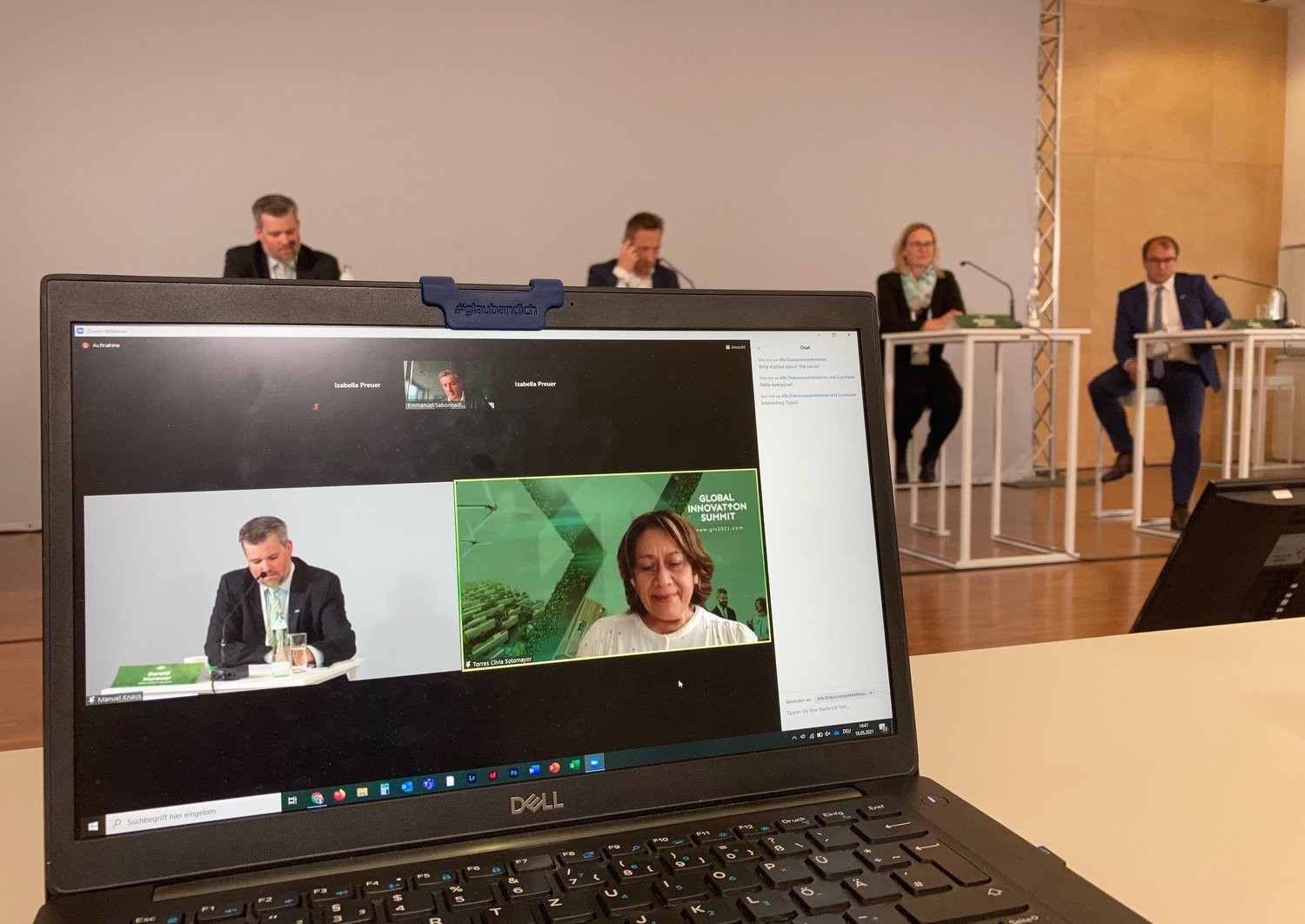
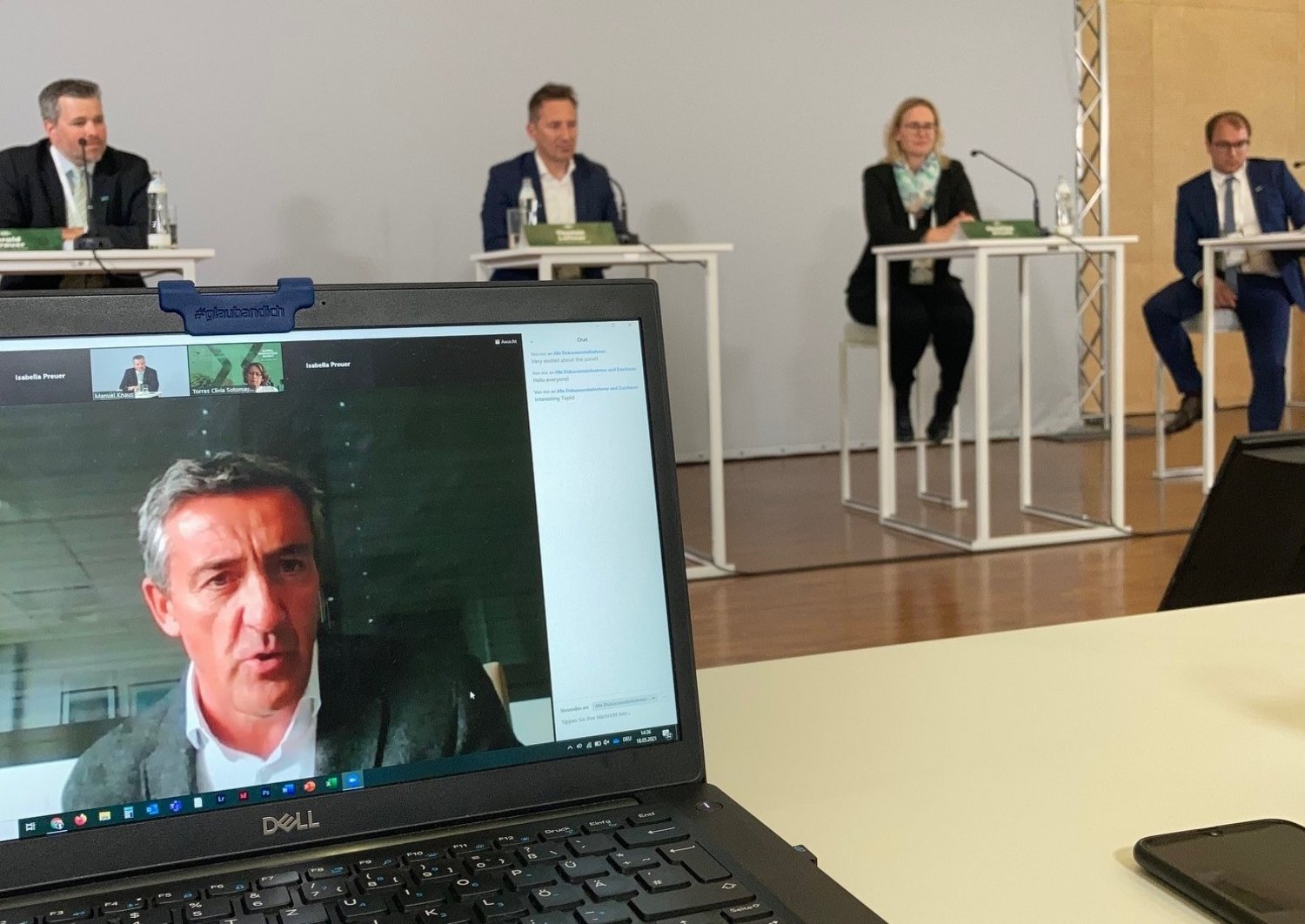
![[Translate to English (US):] A close up of a printed sensor](/fileadmin/_processed_/d/b/csm_SAL_Villach_2021_Helge_Bauer__137__3305b0f6fd.jpg)
![[Translate to English (US):] [Translate to English (US):]](/fileadmin/_processed_/8/7/csm_AdobeStock_269568606_58f63f40ca.jpeg)
